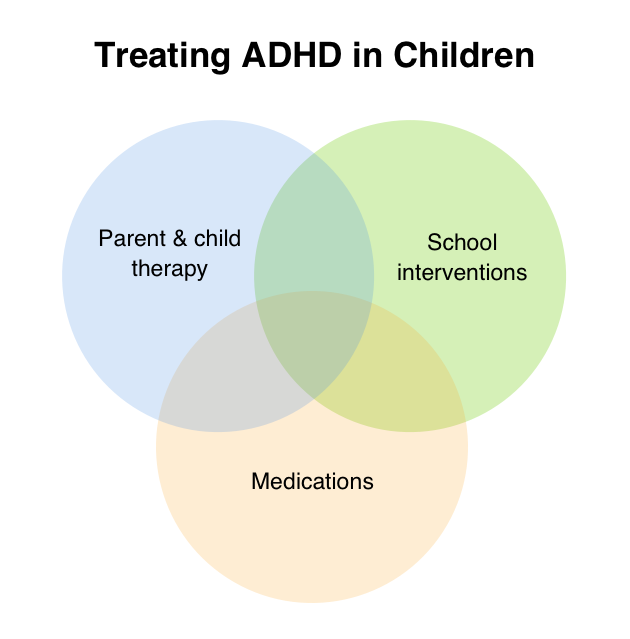The Advantages of Personalized ADHD Therapy Prepare For Better End Results
The implementation of personalized ADHD treatment strategies has actually emerged as an essential strategy in boosting restorative results for individuals affected by this condition. By acknowledging the distinct symptoms of ADHD in each individual, these personalized interventions advertise greater engagement and inspiration, eventually resulting in more effective coping techniques. This customized method not just addresses academic and work obstacles but additionally promotes enhanced social connections and general high quality of life. However, real degree of these benefits raises crucial inquiries regarding the details parts that add to lasting success and just how they can be optimized for diverse populaces.
Recognizing ADHD Irregularity
Although Attention-Deficit/Hyperactivity Disorder (ADHD) is typically perceived as a singular problem, its indications can vary considerably amongst individuals. This irregularity is influenced by a variety of factors, consisting of age, sex, coexisting conditions, and environmental contexts. Children with ADHD may show hyper habits, while grownups may primarily battle with interest deficits. Gender differences likewise play a role, as males are extra regularly detected with ADHD and commonly show more obvious signs and symptoms, whereas ladies might offer with less evident inattentiveness.
In addition, people with ADHD may experience a range of emotional and behavior difficulties, such as anxiousness or opposite defiance, that can complicate medical diagnosis and therapy. The interaction of these elements can result in varied experiences of ADHD, necessitating a nuanced understanding of the condition. It is additionally worth noting that ADHD can offer differently across different social contexts, influencing just how signs are identified and attended to. This understanding underscores the value of acknowledging ADHD as a complex problem, which asks for customized approaches to therapy that take into account the distinct demands and experiences of each individual.
Secret Parts of Personalization
Customized ADHD therapy plans are grounded in numerous crucial parts that ensure reliable administration of the condition. First, a thorough assessment is crucial, including standard ranking ranges, meetings, and behavior observations. This detailed evaluation allows medical professionals to comprehend the individual's special signs and symptoms, staminas, and obstacles.
2nd, the involvement of several stakeholders, including parents, teachers, and the individual, contributes to an alternative view of the person's requirements. Collaboration promotes an encouraging setting that can adapt to the person's context and lifestyle.
Third, treatment strategies must be adaptable and versatile, enabling adjustments based on recurring feedback and the person's evolving needs. This flexibility enables the integration of different restorative approaches, such as behavioral interventions, psychoeducation, and medicine management.
In addition, social and contextual factors have to be considered. Identifying the individual's history, worths, and choices guarantees that the treatment is appropriate and respectful.
Lastly, regular follow-ups and analyses are necessary to keep track of progress and make required adjustments. By concentrating on these vital components, individualized ADHD treatment strategies can significantly boost the effectiveness of interventions, resulting in improved outcomes for individuals with ADHD.
Boosted Involvement and Motivation
To effectively promote improved interaction and motivation in individuals with ADHD, it is important to incorporate strategies that reverberate with their rate of interests and staminas. Customized treatment strategies that straighten with a person's enthusiasms can result in enhanced engagement in restorative activities, fostering a feeling of ownership and interest for the procedure.
Utilizing interactive and innovative techniques can additionally substantially boost inspiration. Integrating gamification elements or real-world applications of abilities can make tasks extra enticing and appropriate. This not only useful source captures attention but also reinforces learning through delightful experiences.
Additionally, setting possible and significant goals tailored to the individual can bolster inspiration. When people see their progress towards directly considerable purposes, they are more likely to stay engaged. Routine comments and recognition of success can further suffer motivation, creating a positive feedback loophole that encourages continued effort.
Lastly, fostering a supportive environment where individuals really feel recognized and valued can significantly impact their involvement degrees. When therapy strategies are established collaboratively, incorporating input from the individual, they are more probable to feel bought their journey, ultimately bring about improved results in taking care of ADHD.
Improved Coping Techniques
Establishing boosted coping techniques is critical for individuals with ADHD, as it equips them with efficient devices to browse day-to-day challenges. A customized therapy strategy enables the recognition of details coping devices customized to the individual's distinct requirements and scenarios - ADHD treatment. Strategies such as mindfulness, time management skills, and organizational techniques can be integrated into everyday routines, cultivating a feeling of control and lowering psychiatrist cost anxiousness
Mindfulness practices, consisting of reflection and deep-breathing workouts, help individuals with ADHD concentrate their attention and regulate their emotions. Time management strategies, such as browse around this web-site using timers or breaking tasks into smaller, workable actions, can minimize sensations of bewilder. Additionally, organizational tools like coordinators and lists can boost effectiveness and liability.
Lasting Favorable End Results
Implementing personalized ADHD treatment plans can result in substantial long-term favorable end results for people. These tailored methods, which think about unique symptoms, choices, and life circumstances, promote a lot more efficient management of ADHD signs and symptoms with time. By focusing on the specific demands of the individual, these plans boost adherence to treatment methods and foster higher engagement in healing activities.

Moreover, tailored therapy strategies can considerably reduce the threat of comorbid conditions, such as anxiety and clinical depression, which are commonly connected with ADHD. Early intervention and regular support help people build strength and coping approaches, promoting overall psychological health.
Ultimately, the long-lasting favorable outcomes of individualized ADHD treatment intends not only enhance the lifestyle for individuals yet likewise add to their overall wellness and success in numerous life domains. This alternative strategy underscores the relevance of personalized treatment in managing ADHD properly.
Conclusion
